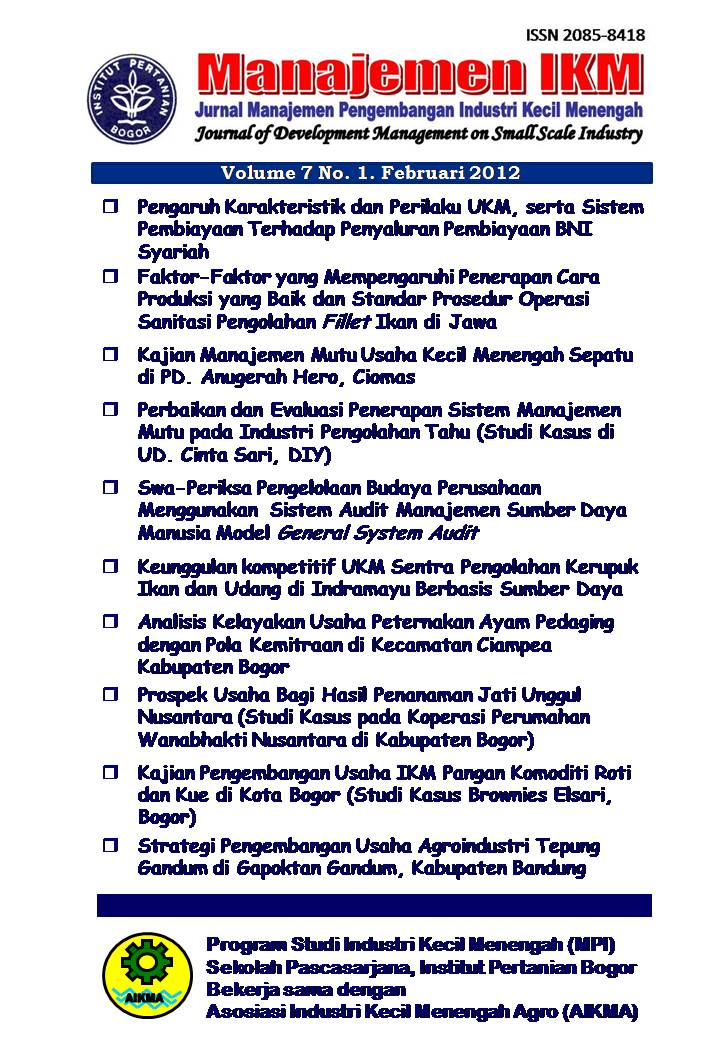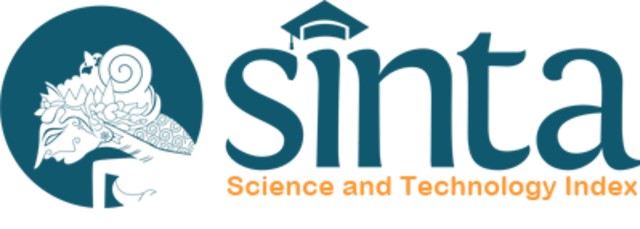Pengaruh Karakteristik dan Perilaku UKM, serta Sistem Pembiayaan terhadap Penyaluran Pembiayaan BNI Syariah
Abstract
After the economy crisis, there were 42.4 million unit of UKM os SMEs (Small and Medium Scale Enterprises) in 2003 or increase of 9.5%, compared to 2000 with a labor of 79 million. At the same time, (1) Syariah banking found its momentum again to grow, known as the negative spread, and (2) The Majelis Ulama Indonesia (MUI) prohibits bank interest. The market share of Syariah banking is 1.20% and the financial distribution per November 2003 is Rp5,466.04 billion, dominated by Murabahah financing as much as Rp3,893.1 billion (71,2%). In general, the syariah financing is based on profit sharing and margin. The most common profit sharing in Syariah banking are musyarakah and mudharabah. The method of margin is done in the form of sales contract. The most developed in Syariah banking are murabahah, salam and istishna. This objectives of this research are to study the characteristics and behavior of SMEs that influence the method of financing, to study the constraints in applying the profit sharing method, to determine the most suitable financing method most suitable to the characteristics of SMEs, and to determine the strategy of BNI Syariah to increase market share, and to compete in the Syariah banking industries. The analysis was done by using the qualitative descriptive, crossed tabulation, chi squared (χ²), and Strengths, Weaknesses, Opportunities and Threats (SWOT). Based on the analysis of χ², and the result frequency, it shows that the characteristic and behavior of UKM that agree with the murabahah financing system is highly significant, while those that agree with the Syariah banking system is significant, and that agree there are constrains in applying profit sharing method is significant. Based on the SWOT analysis, the strategies are (1) SO, by opening new branches to increase market share, changing perception towards bank interest, cooperating with Islamic Development Bank (IDB); (2) WO, by improving quality of services, Automated Teller Machine (ATM) and technology, recruiting experts in Syariah banking and developing products, (3) ST, by using corporate image as institutional positioning, improving skills, simplifying procedures and processes, (4) WT, by cooperating with competitors, increasing product promotion and authority in financial decision. Opening new BNI Syariah branches in potential areas and improving products according to the consumers need, such as foreign currency, is the most possible thing to do.
Key words:Islamic banking, profit sharing, SMEs, strategic











